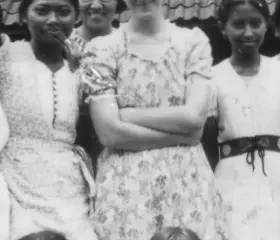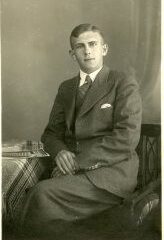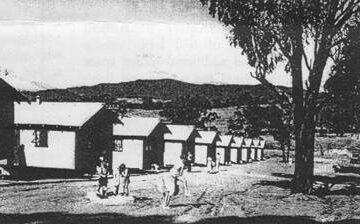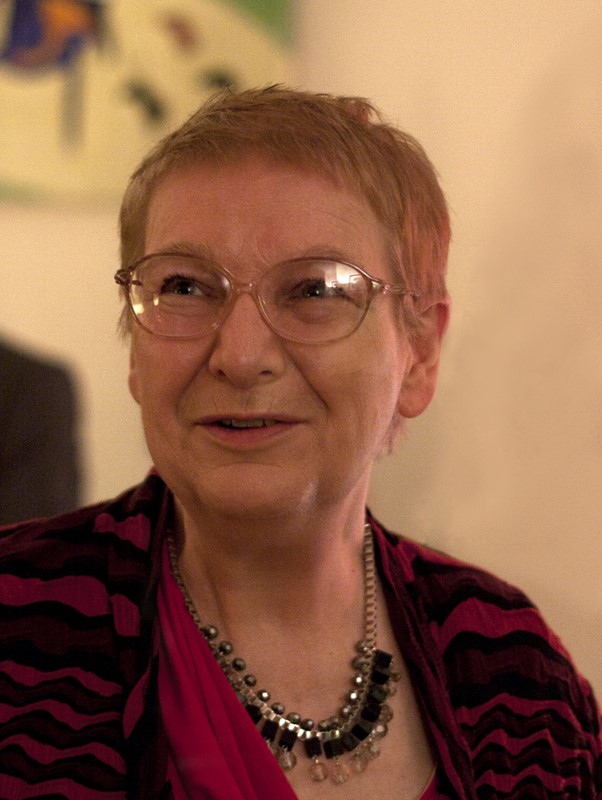
I’ve been doing interviews of Dutch migrants for the Dutch Courier newspaper since a couple of years, and prior to that I wrote many articles about events in my retirement village, or at the Dutch Club in Qld, or Dutch activities in the ACT. But now I’ve been asked to write about myself as a migrant. So here goes.
I was born in 1944 in a suburb of The Hague, close to the sea. I had one younger brother, who moved to Australia before me. My parents divorced when I was two, and my father moved to Amsterdam where he worked for KLM. He remarried, my mother did not.
As childcare only existed when your family members volunteered, my mother rented out rooms to boarders so we could eat and pay the rent. My grandparents were living about 2km away, but were too old to handle two young children. My grandfather hailed from a farm in Groningen and my grandmother from the town of Hardinxveld (Z-H). My mother, Bep, was the oldest of four children. She was a school teacher in The Hague.
When I was five years old, I went to kindergarten, and my mother went back to work. One of our renters watched over my three-year old brother while mam was at work. The next year I started at a Montessori primary school. I enjoyed it a lot. After six years I moved on to High School, which was not as enjoyable, as the teachers were still rather old fashioned and prejudiced against Montessori. They also smoked in the classroom. I hated the smoke.
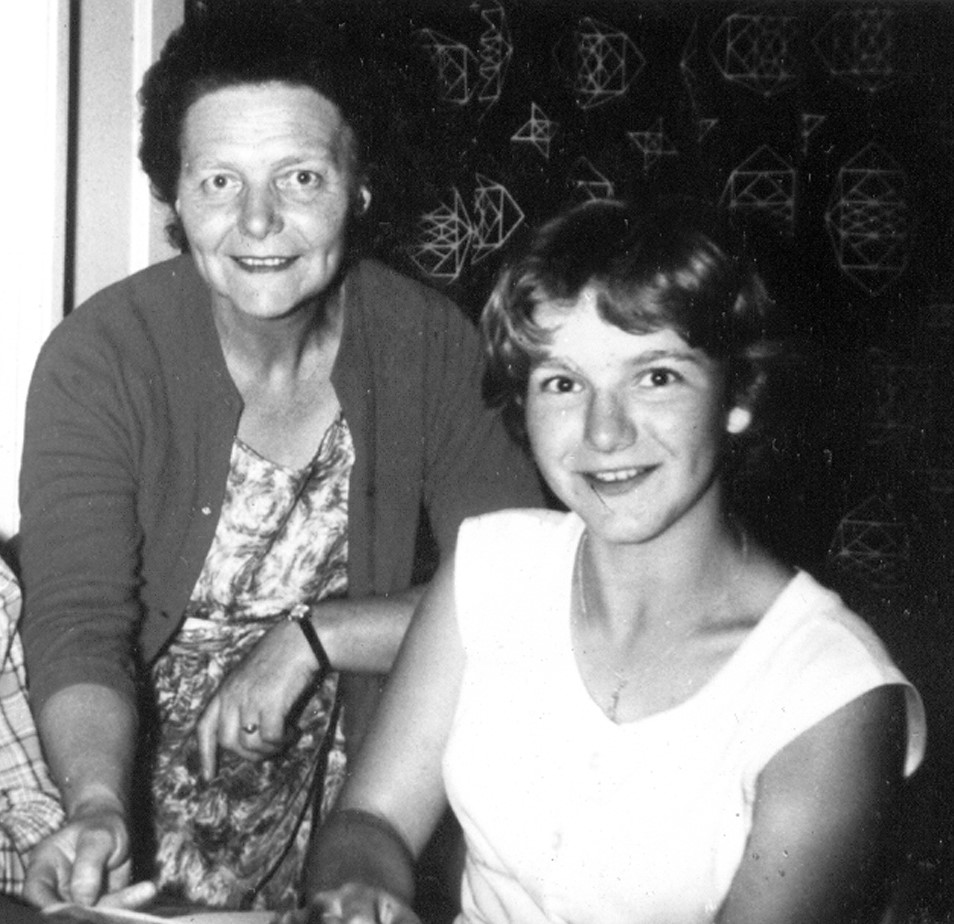
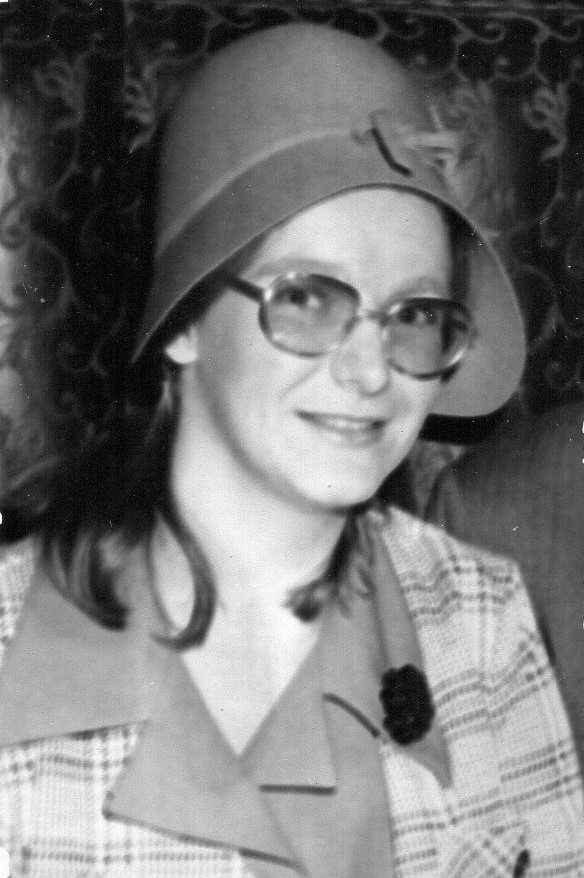
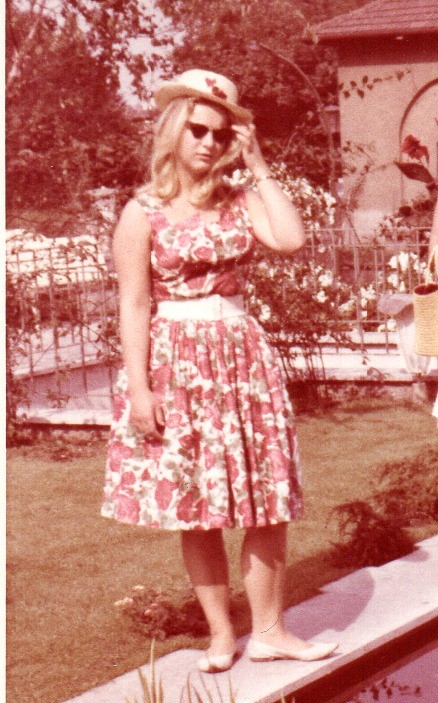
When I finished High School, in 1963, I went to work at the KLM offices in The Hague as a clerk, while I attended Schoevers secretarial school at night. After a year I left KLM, and worked as a secretary through temp agencies. I was sent to many interesting jobs, such as recording the Dutch Parliamentary sessions, receptionist at Delft University International Courses, secretary at ESA-ESTEC space centre, and at the Department of Foreign Affairs.
In 1966 I took a job working for Eurotex-Italia checking the books of the hotels they managed in Italy. In 1967 I was back in The Hague and worked as secretary for the director of the Billiton company. Two years later I left Holland and moved to New York, to work for the United Nations.
After one year in New York, I started to study economics at night at the City University, while continuing to work daytime as a secretary, first at the UN, later for law firms and multinational corporations. I also tutored math at the university. I studied from 1970 through 1976. After graduating with a BA in Economics and Math and a MA in Econometrics, I continued working as a secretary while looking for a job as an economist. It turned out to be very difficult to get an economist job in New York without a degree from an Ivy League university.
In 1980 I spent almost a year in Netherlands, living with my mother who had broken her knee in a traffic accident. When back in NY I started looking for jobs as an economist outside NY, and after a few months I was offered a job with Gulf Oil in Texas. The company moved me, and in May 1981 I started work as a petroleum analyst in Houston. A few months later I married my boyfriend from NY. I enjoyed living in Houston, the climate was much nicer than in NY, and my job was interesting too.
Unfortunately, in 1984 Gulf Oil was merged into Chevron and most of the Gulf Oil employees, including me, were laid off. The city of Houston went into a major recession as most large companies were laying off people, and many small businesses closed down. During one year of doing short term contract jobs I divorced, and in 1985 I moved to Florida with a new partner.
In Miami I was very lucky to find a position in urban planning in the county government. I enjoyed working there very much and also had opportunities to use my Spanish. It was an interesting job and secure for life. But some years later I split from my partner and gave up the job to move to Australia because of my mother’s health. She had moved to Australia when she was 76, to live with my brother and his wife.
They both worked and lived an hour outside of Perth, at the end of a rural road with not much wildlife around and no neighbours. Mam got a car and did some driving around and visited doctors and Dutch people in a nearby town, but after a few years she gave up driving and as there was no internet or mobile phones yet, she was really isolated.
Aged 80, Mam decided to make a trip around the world. She came to visit me in Florida and while there, she was diagnosed with congestive heart failure. The doctors advised that she shouldn’t travel alone anymore, and no long trips. We decided I would move to Australia to go live with Mum in Perth.
So I was not a typical immigrant, I was 45 and had 27 years of work experience of which 20 years in the USA. I was lucky to soon get a job at Curtin University and we bought a small house nearby. Mam was able to go to the shops and the Dutch Club by herself.
Then she got sick, an ulcer in the oesophagus. After time in hospital and some blood transfusions she came home, very weak. Her heart condition didn’t help. We arranged for the Silver Chain to visit her. There was also a Dutch Care organisation that sent a social worker and some retired Dutch immigrants visited homebound Dutchies. Mam’s spirits improved again, but she never got strong enough to go back to the card games at the Dutch Club.
After a bit more than a year my contract at Curtin university finished. We were now in a recession and the university had no money for new contracts. I applied for a job with the Commonwealth government in Canberra, which I did get, and started planning a move. Then Mam died. She had been looking forward to living in Canberra, but her heart gave out. Thus, I moved to Canberra by myself in 1992.
I started work in the Department of Industry in the city, and after a year and a half I moved to Social Security in Tuggeranong. I bought a house in Kambah and then concentrated on paying off the house as quickly as I could. I worked long hours, and joined a variety of social and cultural organisations. I became secretary of the Canberra Dutch Club, a position I held for over 10 years, and represented them at ACT Ethnic Communities’ Council meetings.
During vacations I went to conferences in other capital cities, driving and visiting friends along the way. After some years, a fall at work aggravated an old back condition. This gradually became worse, till in 2000 I suddenly couldn’t move at all and had to have back surgery. Fortunately, I had enough leave to cover the subsequent absence from work.
Four years later I aggravated the back again and began working part-time. Eventually I was offered a redundancy and retired. I was able to pay off my house and live on a combination of super, overseas and age pensions. In 2004 I had started doing Pilates classes that helped with my back condition, as well as keep the rest of my body in working condition, as I had inherited arthritis from my mother and grandmother.
I volunteered to do a weekly Dutch community radio program, joined the committees of a number of cultural organisations and generally kept busy. After ten years of retirement, it became harder for me to maintain my house and gardens and I decided to move to a retirement village. I had visited the Prins Willem Alexander village in Queensland some years before, and moved there in 2016.
For a short time I volunteered with the Dutch radio group in Brisbane, but found it becoming a bit onerous. I joined a local folk music club and the Qld Dutch Club. I also started to do more travel, in Australia and overseas. Then the Covid struck and I stayed at the village for the next two years. I do a bit of volunteering around PWA village, and at the end of 2022 did a bit of travel again. My arthritis is getting worse and travel is becoming more difficult, but I’ll do it for as long as I can manage.
I don’t need to go visit Netherlands again, I’ve only got a few cousins there that are about the same age as I am. I don’t miss Netherlands at all, and the USA not either. I’m happy to be living in Australia. It has many advantages over life in the USA or the Netherlands. Australia is not perfect, but I think life here is better than the other countries I have lived in. And I still can buy some Dutch foods here.!
Marianne Pietersen
December 2022
More interviews conducted by Marianne:
Henk Hoonhout and Ali Geeraerts
Hank and Bertie Halle – loving sports
Bill Hunt changed his name from Hoekstra
Hanny van der Mark -tough migration years
